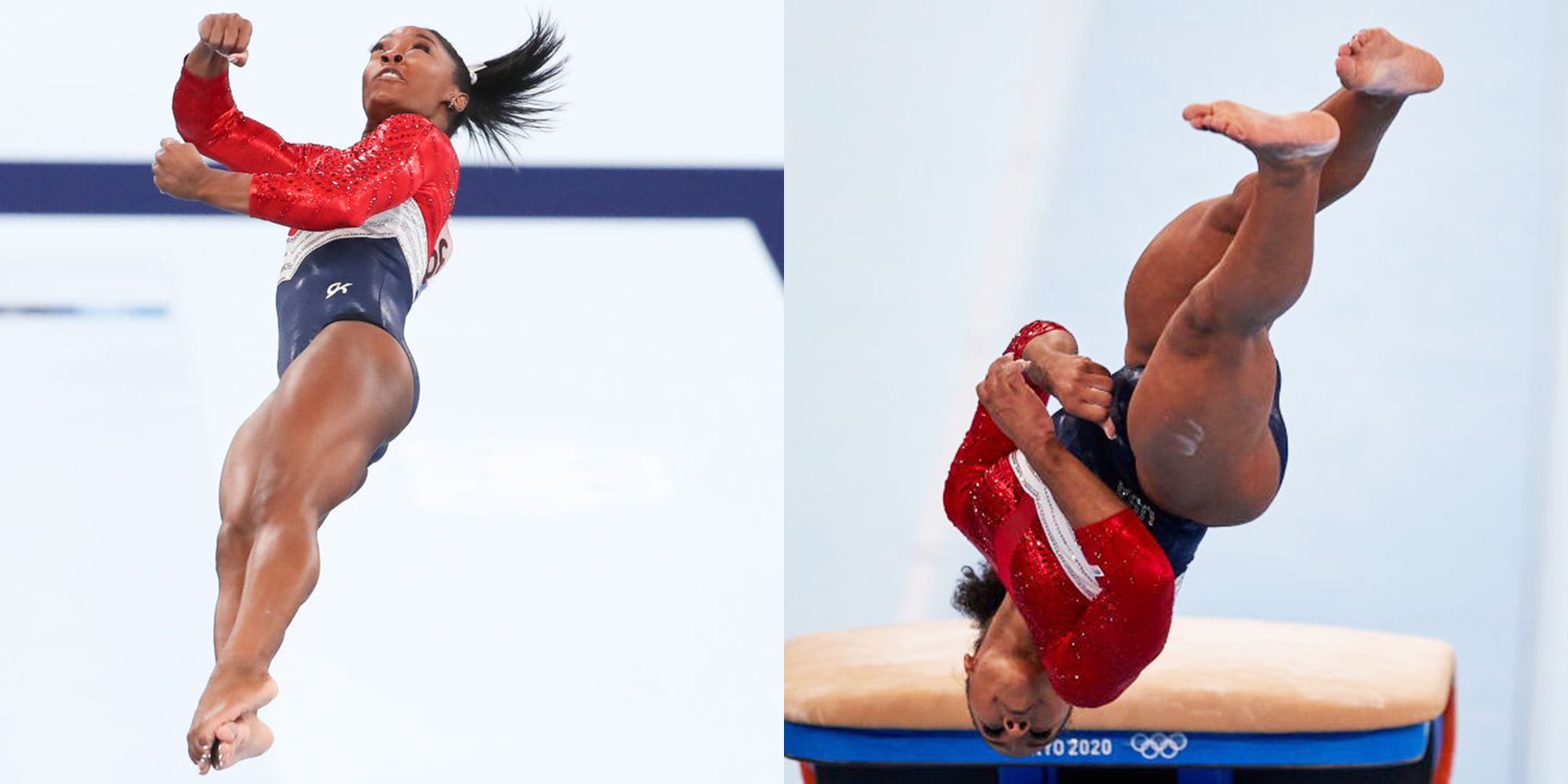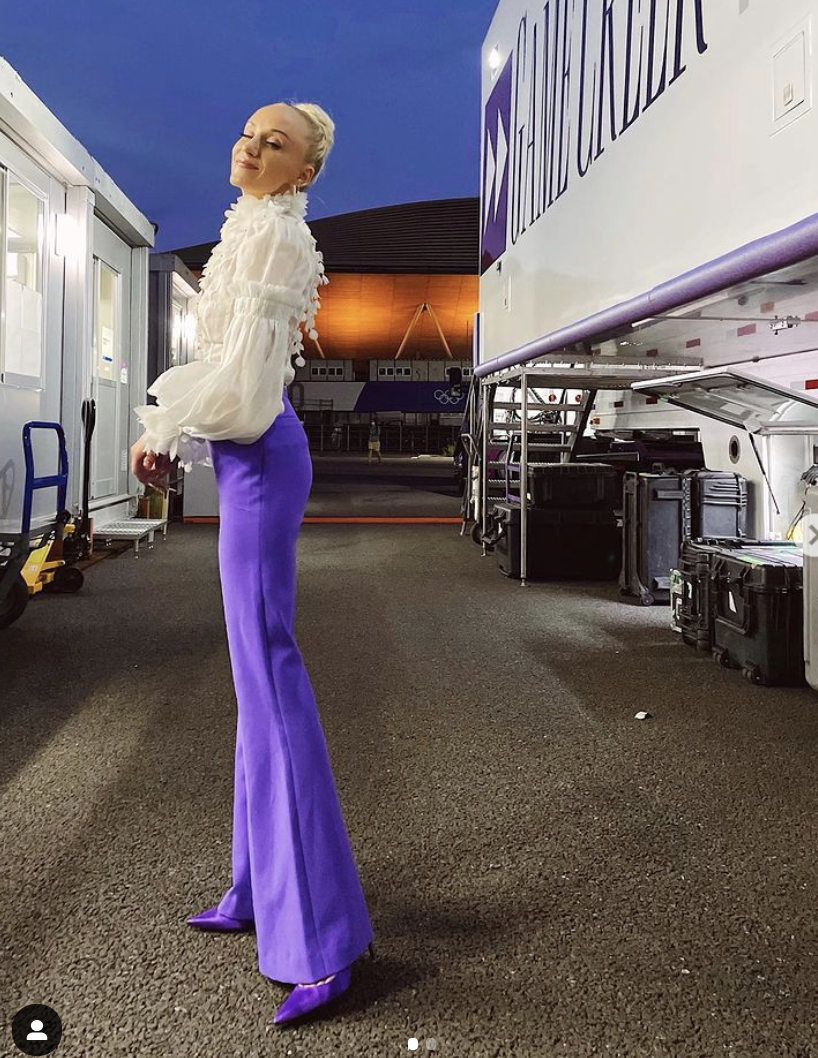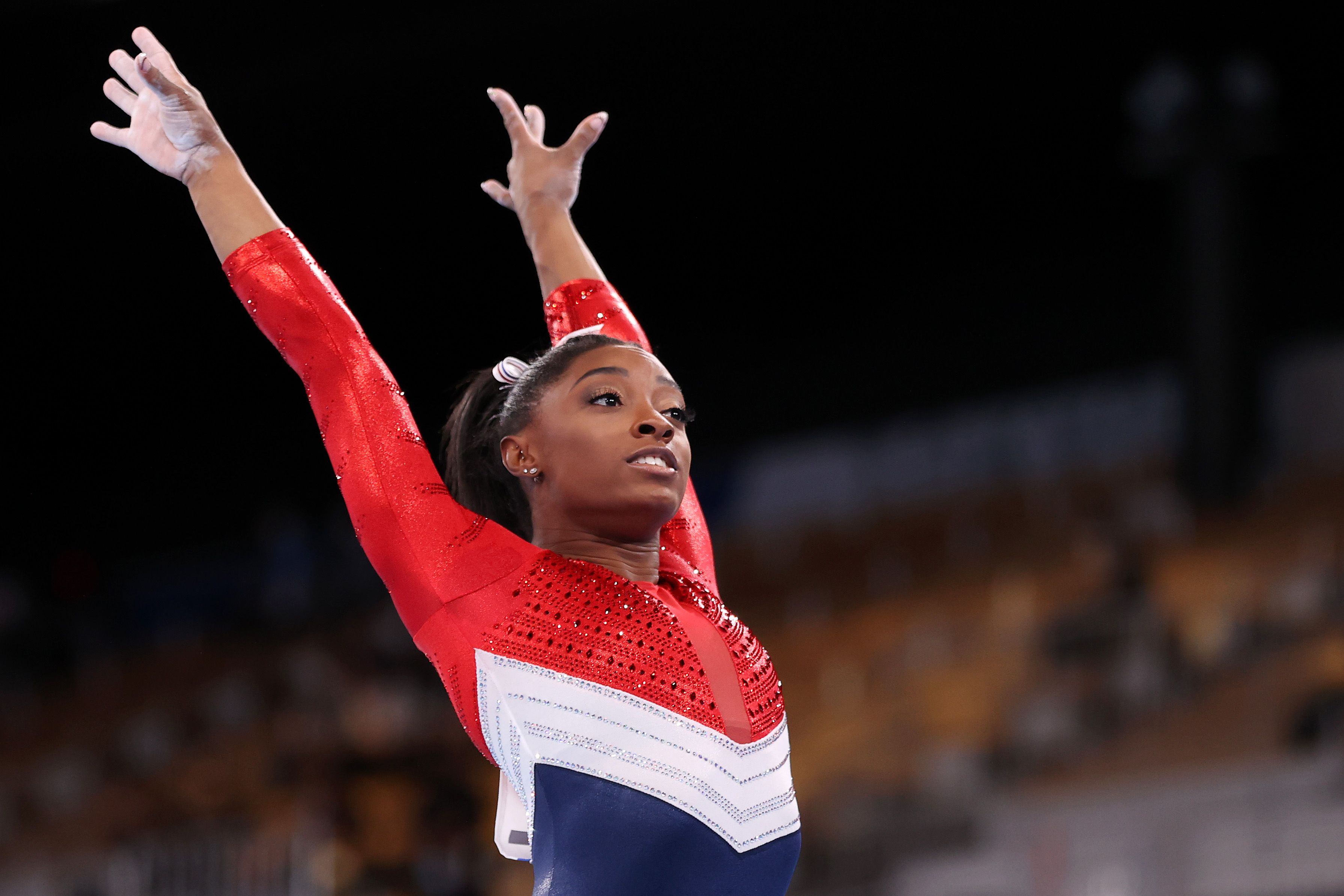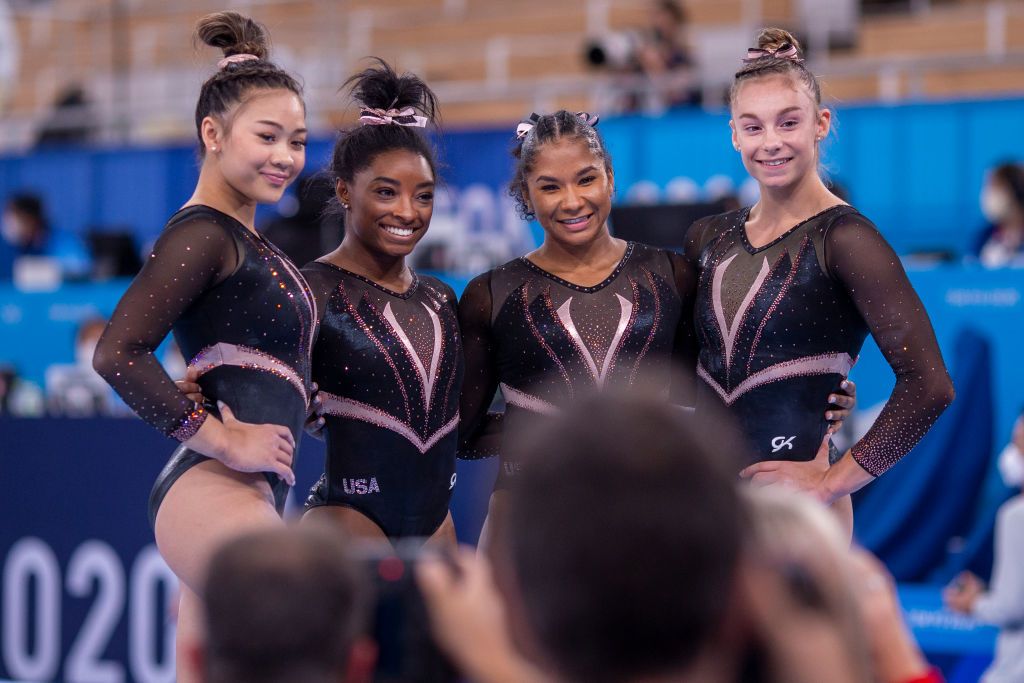- Simone Biles experienced “the twisties” before pulling out of the team and all-around events at the Olympics.
- The twisties is the feeling of being lost in the air making an athlete unable to complete skills to their usual ability.
- It’s a mental performance issue that many top gymnasts have also experienced and can be dangerous when they are flying in the air and attempting high-difficulty stunts.
The world was stunned on Tuesday when Olympics G.O.A.T. Simone Biles pulled out of the Olympic team gymnastics competition after fumbling her vault. Simone, 24, later explained that she was struggling with a mental performance issue that’s commonly called “the twisties” in gymnastics.
“I just don’t trust myself as much as I used to,” Simone said in a press conference after Team USA took home silver. “I’m a little bit more nervous when I do gymnastics. I feel like I’m also not having as much fun.” Simone also shared that, during a morning practice, she had “the twisties.” “They saw it a little bit in practice… having a little bit of the twisties,” Simone added, referring to her teammates.
But…what are the twisties, exactly? It’s not a medical diagnosis, but the twisties is a strange phenomenon in gymnastics where someone can no longer do a twisting skill they’ve done many times in the past. “The rhythm is off, and your brain will like stutter step for half a second and that’s enough to throw off the whole skill,” former Olympic gymnast Laurie Hernandez told Olympics.com. “And, so, it happens, and it takes a second to get over that.”
“The twisties happen more than the general public may be aware and are absolutely terrifying for athletes in acrobatic sports,” Nicole Detling, PhD, CMPC, owner of HeadStrong Consulting, LLC, a sport psychology company focusing on performance enhancement through mental skills training. “In general, the twisties is a mental performance situation, NOT a mental health issue.”

Simone previously shared that she’s dealt with this before.“2019, at the beginning of the year, I forgot how to twist and flip,” she told Olympics.com.



Five-time Olympic medalist Nastia Liukin spoke about the twisties on NBC Tuesday night, saying that Simone “did the right thing” to pull out of the competition. “I think when you actually take a look at what happened on that vault—she got lost. And any gymnast knows—we call it the ‘twisties’—and basically she was supposed to do another whole rotation and got completely lost in the air. It’s a mental error, essentially, that every single gymnast goes through.” She also added this scary aside: “If you are not 100% sure of yourself, and where you are in the air, it can be very dangerous.”
Former Olympic gymnast Gabby Douglas experienced something similar at the 2011 U.S. Nationals, balking when she was supposed to complete a back handspring combination. After a coach pointed her to return to the beam, she completed the skill without injury.
“The mind and body are just not disconnected—ever,” explains Thea Gallagher, Psy.D., clinic director at the Center for the Treatment and Study of Anxiety at the University of Pennsylvania’s Perlman School of Medicine. “At someplace like the Olympics, the stimuli there is astronomical. Your brain is processing a lot of new things and there’s tremendous pressure. When you’re under pressure, your mind and body are impacted and may not work together as well as they should.” That can put the athlete at risk physically.
Simone shared a post on her Instagram stories, which referenced the twisties:

“For non-gymnasts, the fact that she balked mid-air and accidentally did a 1.5 on her first vault instead of a 2.5 is a big deal. It’s terrifying. She could have been severely injured getting lost in the air like that. The she somehow landed on her feet shows her experience and is incredible. The margin for error on a skill like that is insanely low. A very small wrong move, and career-ending or even worse, life-threatening injuries can occur.”
USA Gymnastics announced in a statement on Wednesday that Simone also pulled out of the all-around competition: “We wholeheartedly support Simone’s decision and applaud her bravery in prioritizing her well-being. Her courage shows, yet again, why she is a role model for so many.”
Source: Read Full Article
